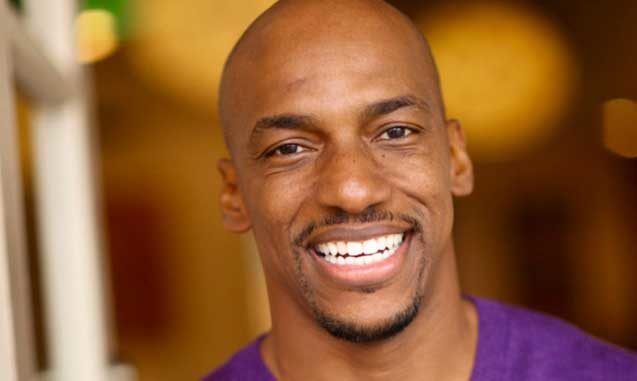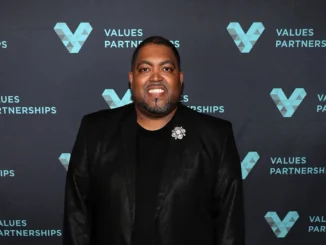
By Staff
What happened that you learned about having dyslexia?
Throughout my childhood I went undiagnosed. At 23 years of age and serving a four year prison sentence, I was screened for my reading ability. Each inmate has to be processed. That process encompasses mental and physical abilities. I was reading on a 3rd grade level. My brother and sister were precocious. They both read fluently early in life. I knew something was wrong with me around the 3rd grade but just didn’t understand my inability to spell and read until the GED instructor in the prison started asking questions. Questions such as, does all your siblings read poorly, what was the last grade I completed and did my parents read well. All of these was befuddling me. He asked me would it be ok if he had me screen for dyslexia. I was oblivious to that word and immediately placed in in the same category as me being dumb. I was called that so much in my young years. I proceeded through that screening it was discovered that I was dyslexic. After I learned that I wasn’t dumb, I immediately called my mom to break the new to her of my diagnosis. She apologized for all the names she called me due to her frustration with me always fighting in class and skipping school. There are so many people who are dyslexic walking the streets and sitting in classrooms afraid to speak. I know that pain. Dyslexia, can be paralyzing if you’re not diagnosed and remediated.
Tell us about your book?
My memoir gives a complete picture of a young black illiterate boy who had to navigate the traps and pit falls of the street life. My story is the blue print as to how one has to equip himself with the skill of reading in order to extricate himself from the psychology of incarceration. This deals with changing your thinking, actions and behavior. Poverty doesn’t cause one to commit crimes directly. My brother and sister grow up in those same pissy projects but enjoyed getting up each morning to make their was to school. They had dreams on making a way out by going to college. They both were successful in making their dreams come true. My self imposed limitations prevented me from dreaming in a way that was healthy. I had dreams to becoming a drug dealer because I know school wasn’t for me. I couldn’t read or spell. I made all the wrong choices but turned it around. Dyslexic kids and those who are struggling to emulate poor role models can get hope from my story. The book also, touches on family issues. You get to see life through my lens and walk down some very challenging roads. All to make it to the other side where there is green pasture. My book has been read by many incarcerated individuals and a large number of dyslexic advocates. A group of PhD students are doing a study on my life in Houston,Texas area. It also has made it all the way to Washington DC before 9 United States, senators. I gave them my testimony of growing up with Dyslexia and now there is a law called the first step act that President Donald Trump signed, that each federal inmate has to be screened for dyslexia upon the arrival.












What has it been like becoming an advocate for dyslexia?
I enjoy advocating for those with dyslexia. It truly is a blessing to be a blessing to others. Those kids can’t wait to see me when they hear that I’m coming to their school or town halls. Children need encouragement. It is critical that they see that things are possible if they can just get the right outlook on life. Dyslexia can rob you of your future if you’re not careful. You don’t feel good about yourself when you can’t read and all the other kids are reading and writing. I get the opportunity to talk one on one and in groups with kids. I just wish there was a young lady that could company me, so she could talk to the young girls. It’s so fulfilling to see those smiles and eyes pop open when you give sound advice to them. Entertainers are gods of this world. So, I choose to use my platform to be a force that encourages kids and incarcerated people to rise. Imagine the inmates that tell me they can’t read. Bill Cassidy and his wife and I did a study in Elaine Correctional Facility prison in Baton Rouge, Louisiana. Out of 100 men and 100 women, 52% of them read very poorly…. if you leave prison not knowing how to read your chances on going back are really high. One in 5 in this country deals with some form of dyslexia.
Tell us about your speaking engagement in Utah.
It’s another fundraiser that I have the honor to speak and share my story. Majority of the schools in America can’t teach a kid that is dyslexic. The science of reading should be accepted in every school. Dyslexia has been identified for 100 years. Unfortunately, we have not fully developed ways to treat it effectively. The cost to do that is very expensive, go figure. I’m speaking to get people to donate. My last fundraising efforts was in Houston, Texas, where 1000 people attended. To date, they raised the most amount of money of any event that I had the opportunity to support. And yes, I am pleased to utilize my journey to impact others. So, many children will get the help that they need. It costs roughly 75 dollars and hour to help a child. Poor people don’t have those type of resources. This is why I speak every chance I get to help raise awareness and the resources to help them. I am looking forward to going to Utah. Let’s see if we can raise even more money for our children.
Tell us about the men you engage with who are incarcerated.
This is something I’m extremely passionate about. I wrote a book titled, “The Life I Chose, The Streets Lied To Me”. That title gets their attention every-time . After talking to them for about 10 minutes, they understand that they too have been lied to. Today’s music, tv and movies tells us stories that don’t reflect who we truly are as a people. These images distort our thinking and encourage our behavior. Everybody in the Hood wanted to be Scarface or Nino Brown. These ghetto heroes showcased anti social behavior. I’m able to make that connection and show them that they have untapped potential just like I had. Most of these guys have children. I express to them straight up that they were selfish individuals. To leave your children because you think you have to sell dope is selfish. We sell dope because we like the power that comes with it. Everything one dose is done for us with the backdrop being it’s about giving my family a better opportunity. Our grandmothers and grandfathers worked their asses off with no education and sometimes no transportation. However, they got up every morning and took jobs to make sure we were fed and given shelter. After my 30 minute talks, many of the guys agreed that they wish they could’ve made better choices. I’ve had the opportunity to see many of the guys that I spoke with in prison on the streets and they are thriving. They are with their children and significant others. That makes me happy. I am in the service business. My job is simply to help people.
How do you feel dyslexia impacted your life?
Dyslexia fleeted me of my childhood. I was never a kid. I started using and selling drugs at 13 years old. Growing up fast is an under statement. Never enjoying those important childhood years is something I fight with time to time. I recall Master P telling me 15 years ago that you can’t look back on life. Dealing with this issue was not easy. The best thing that I can say at this time is my memoir will be a movie. All my suffering will not go in vain. Can you imagine being call in front of the classroom to read and you can’t read. The teacher would make you stand there for 5 minutes floundering those the sentences. All the while, kids are laughing at you and you’re just ready to leave school and go into the project and get high on cocaine. My life was hell as I think about it. Just hell! So, before I leave this earth I have to tell my story on the Big Screen. This is my truth and I embrace it.
About
Born into abject poverty in New Orleans’ most dangerous and most impoverished public housing project, the Calliope Houses, the prospects for Baraka’s future could not have been more bleak. Before going off to prison to serve a 30 year sentence, his father introduced Baraka to drug use and drug sales as a means of survival. Baraka’s mother, unaware of his dyslexia, called Baraka dumb and stupid when he could not read as well as his siblings and classmates. He failed at school and dropped out in the seventh grade. He was an undiagnosed dyslexic until, at age 23, in prison, and functionally illiterate, he was diagnosed with dyslexia and was told by a fellow inmate that, unlike any other inmate he had met before, Baraka could be somebody if he applied himself. He did, and then some. Now an accomplished actor author, actor with some 30 TV shows and films to his credit, and proud dyslexia advocate, through his Dyslexia Awareness Foundation (www.DyslexiaAwarenessFoundation.org) he has devoted himself to helping children, adults, and incarcerated persons succeed in life despite their dyslexia.
He has been profiled by Oprah Winfrey, his book has been made mandatory reading for entire police departments and schools, he has testified before the U.S. Congress on the issue of dyslexia, he has launched a special police involved camp program for at-risk youth (www.CopCamps.com), he works with juvenile justice programs throughout the United States, he works with city, state, and national legislators to influence learning disability legislation and policy, and he brings dyslexia screening and treatment directly to school systems and to jails and prisons around the country. Affectionately known as “The Prison Coach,” (http://bit.ly/AmeerBaraka-ThePrisonCoach), the Education and Testing Division of the New Orleans Police Department has partnered with Baraka’s 501(c)(3) Dyslexia Awareness Foundation to help police cadets who struggle with dyslexia to improve their reading and writing skills so as to be able to pass the NOPD’s Police Entrance Exam.





